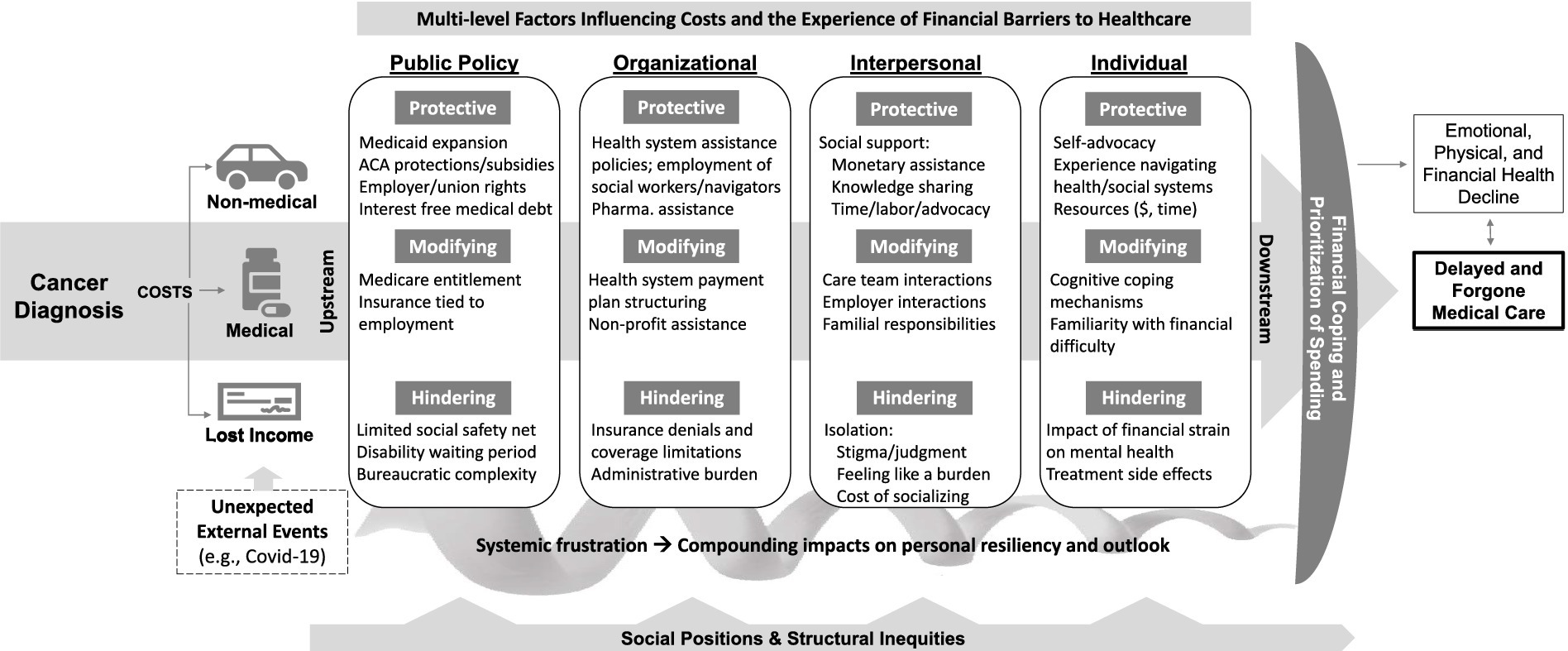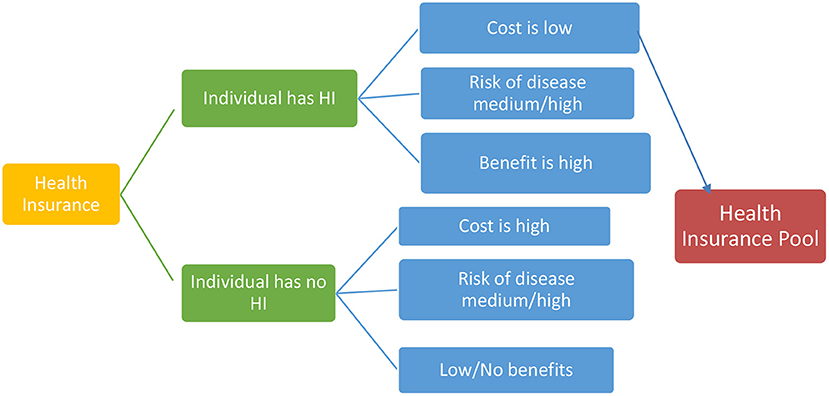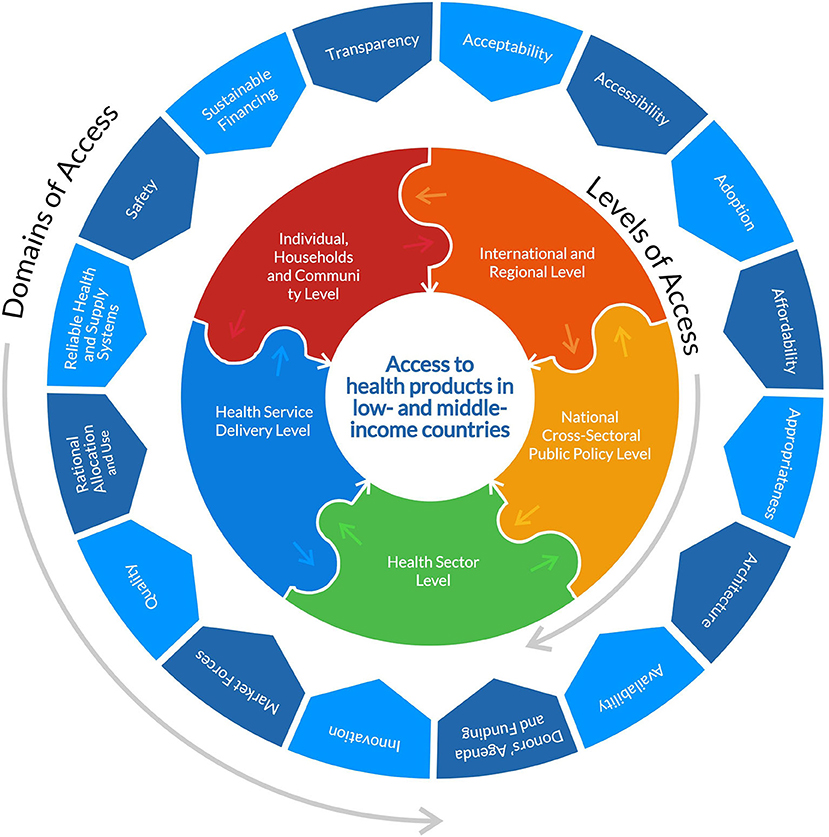Financial Barriers to Healthcare Access in Developing Nations

Financial barriers pose significant challenges to accessing healthcare in developing nations. Limited financial resources hinder individuals from seeking necessary medical care and can result in delayed or inadequate treatment. In many cases, individuals are unable to afford the cost of healthcare services, medications, and insurance coverage. As a result, healthcare access becomes a privilege reserved for those who can afford it, leaving vulnerable populations without the care they need to live healthy and productive lives.
Financial constraints and their impact on healthcare access

Financial constraints play a significant role in hindering healthcare access in developing countries. Limited financial resources make it difficult for individuals to afford necessary medical care, including doctor visits, diagnostic tests, and medications. As a result, many people delay or forgo seeking medical treatment altogether, leading to worsened health conditions and potentially avoidable complications. This financial burden creates a barrier that prevents individuals from receiving the healthcare they need to live healthy lives.
Challenges of affording essential medical services in developing countries

Affording essential medical services in developing countries presents numerous challenges. The high cost of healthcare services, including doctor visits, diagnostic tests, and medications, can be overwhelming for individuals with limited financial resources. Lack of affordable health insurance further exacerbates the problem, leaving many people without coverage for necessary treatments. As a result, accessing essential medical services becomes a significant financial burden that hinders healthcare access.
Government Funding and Healthcare Infrastructure

Government Funding and Healthcare Infrastructure
Government funding plays a crucial role in improving healthcare accessibility in developing countries. By allocating sufficient resources to the healthcare sector, governments can ensure the availability of essential medical services. This includes funding for medical facilities, equipment, and healthcare professionals. Adequate healthcare infrastructure, such as hospitals and clinics, is essential in overcoming financial obstacles and providing affordable healthcare services to the population. Furthermore, government funding can also support the implementation of health programs and initiatives that target underserved communities, addressing their specific healthcare needs.
Role of government funding in healthcare accessibility

Government funding plays a pivotal role in improving healthcare accessibility in developing nations. It provides the necessary financial resources to support the healthcare infrastructure, including hospitals, clinics, and medical equipment. Furthermore, government funding also helps in recruiting and training healthcare professionals. By allocating sufficient resources, the government ensures that essential medical services are available to all individuals, regardless of their financial capabilities. This helps in reducing financial barriers and increasing healthcare accessibility in the country.
Importance of adequate healthcare infrastructure in overcoming financial obstacles

Adequate healthcare infrastructure is crucial in overcoming financial obstacles and improving healthcare accessibility in developing nations. This infrastructure includes well-equipped hospitals, clinics, and medical facilities that can provide quality care to individuals. With a strong and efficient healthcare infrastructure in place, medical services can be delivered more efficiently and at affordable costs. Additionally, it allows for effective coordination and management of resources, ensuring that healthcare services are accessible to all individuals, irrespective of their financial capabilities.
High Cost of Medications and Treatments

The high cost of medications and treatments poses a significant barrier to healthcare access in developing nations. As someone living in a developing country, I have witnessed firsthand the exorbitant prices of essential medications and treatments. Many individuals simply cannot afford these expenses, forcing them to live without proper medical care. This financial burden prevents people from accessing the necessary healthcare they need, leading to worsened health outcomes.
Impact of expensive medications on healthcare access

Access to healthcare is severely hindered in developing nations due to the exorbitant prices of medications. As someone living in a developing country, I have witnessed firsthand the impact of expensive medications on healthcare access. The high costs make it impossible for many individuals to afford essential medications, resulting in delayed or inadequate treatment. This leads to worsened health outcomes and a cycle of poor healthcare access.
Challenges associated with affording necessary medical treatments

Affording necessary medical treatments in developing nations is a major challenge. The high cost of treatments makes it difficult for individuals to access the care they need. Many people are forced to choose between paying for medications and other basic necessities. This leads to delayed or inadequate treatment, which can have serious consequences for their health. Additionally, the lack of affordable options puts a strain on already limited healthcare resources in these countries.
Lack of Health Insurance Coverage

Importance of health insurance in improving healthcare access
Being without health insurance coverage poses significant challenges in accessing necessary medical care in developing nations. Without insurance, individuals are often left to bear the full cost of treatments and medications, which can be prohibitively expensive. This financial burden can lead to delays in seeking care and result in inadequate treatment. Health insurance plays a crucial role in providing financial protection and ensuring equitable access to healthcare services.
Importance of health insurance in improving healthcare access

Health insurance plays a crucial role in improving healthcare access. With insurance coverage, individuals have financial protection and can afford necessary medical treatments and medications. It ensures that healthcare services are more affordable and accessible, reducing the financial burden on individuals. Health insurance also promotes early intervention and preventive care, leading to better overall health outcomes. Being insured provides peace of mind and enables individuals to seek timely and appropriate medical care.
Barriers faced by individuals without insurance in accessing medical care

Barriers faced by individuals without insurance in accessing medical care include high out-of-pocket costs, limited healthcare options, and lack of financial protection. Without insurance, I have to pay for medical services in full, which can be unaffordable. Moreover, I may not have access to the preferred doctors and specialists, limiting my treatment options. Without insurance coverage, I also lack the financial protection that prevents me from experiencing significant medical debt.
Cultural and Social Factors Affecting Financial Access to Healthcare

Cultural and Social Factors Affecting Financial Access to Healthcare
In developing nations, cultural and social factors significantly impact access to healthcare services. Cultural beliefs and practices can influence individuals’ healthcare-seeking behavior, leading them to delay or avoid seeking medical care due to financial concerns. Additionally, social disparities such as income inequality and limited social support systems contribute to the financial obstacles faced by individuals in accessing healthcare. Addressing these cultural and social factors is essential to improve financial access to healthcare in developing nations.
Influence of cultural beliefs on healthcare-seeking behavior

In many developing nations, cultural beliefs strongly influence healthcare-seeking behavior. People often rely on traditional healing methods or home remedies due to cultural beliefs and practices. This can lead to delayed or inadequate medical care, as individuals may not prioritize seeking professional healthcare services. Overcoming these cultural barriers requires understanding and respectful engagement with local customs and beliefs to encourage individuals to seek timely and appropriate medical attention.
Social disparities contributing to financial obstacles in accessing healthcare

Access to healthcare in developing nations is not only hindered by financial factors but also by social disparities. These disparities are often reflected in income inequality, where individuals from lower socioeconomic backgrounds face greater challenges in affording healthcare. Additionally, marginalized communities, such as ethnic minorities, refugees, and rural populations, may encounter difficulty accessing healthcare due to limited resources and infrastructure. These social disparities perpetuate financial obstacles, making it harder for individuals in these groups to seek the healthcare they need.
Conclusion and Recommendations

Conclusion and Recommendations
In conclusion, financial factors present significant barriers to healthcare access in developing nations. The high cost of care, lack of health insurance coverage, and social disparities contribute to these obstacles. To address these issues, it is crucial for governments to allocate sufficient funding for healthcare and improve infrastructure. Additionally, implementing policies to make medications more affordable and expanding health insurance coverage can enhance accessibility. By addressing these financial challenges, we can ensure that everyone has equal access to necessary healthcare services in developing countries.
Summary of financial barriers hindering healthcare access in developing nations

Financial barriers pose significant challenges to accessing healthcare in developing nations. The high cost of care, lack of health insurance coverage, and social disparities create obstacles for individuals seeking medical treatment. These financial hurdles restrict many from receiving the necessary care and contribute to health inequalities. Addressing these barriers is crucial to ensure equitable access to healthcare for all individuals in developing countries.
Proposed solutions and strategies to improve affordability and availability of healthcare services

Proposed solutions and strategies include implementing universal health coverage programs to ensure that everyone has access to affordable healthcare services. This can involve expanding health insurance coverage and reducing out-of-pocket expenses for individuals. Additionally, investing in healthcare infrastructure, such as building more hospitals and clinics, can improve the availability of services in remote areas. Promoting public-private partnerships and increasing funding for healthcare initiatives are also essential steps in improving affordability and accessibility.

Leave a Reply